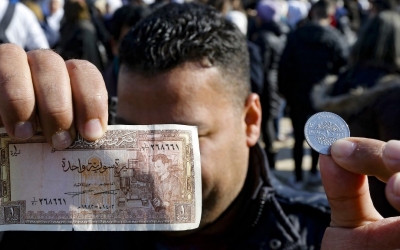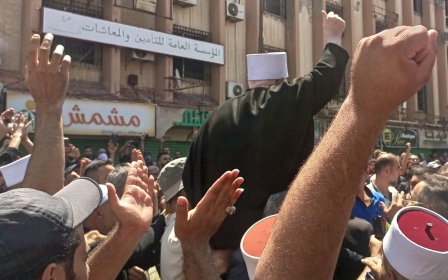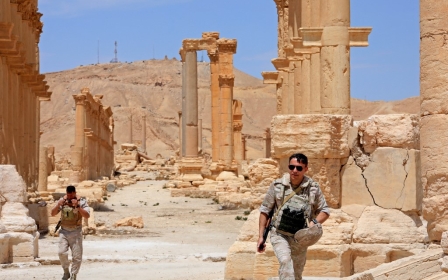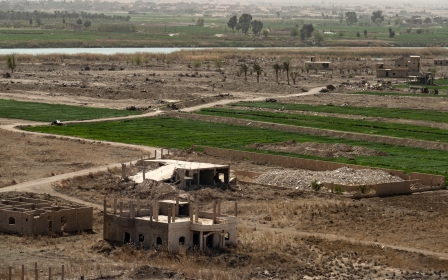Syria: Protests spread over dire economic and living conditions
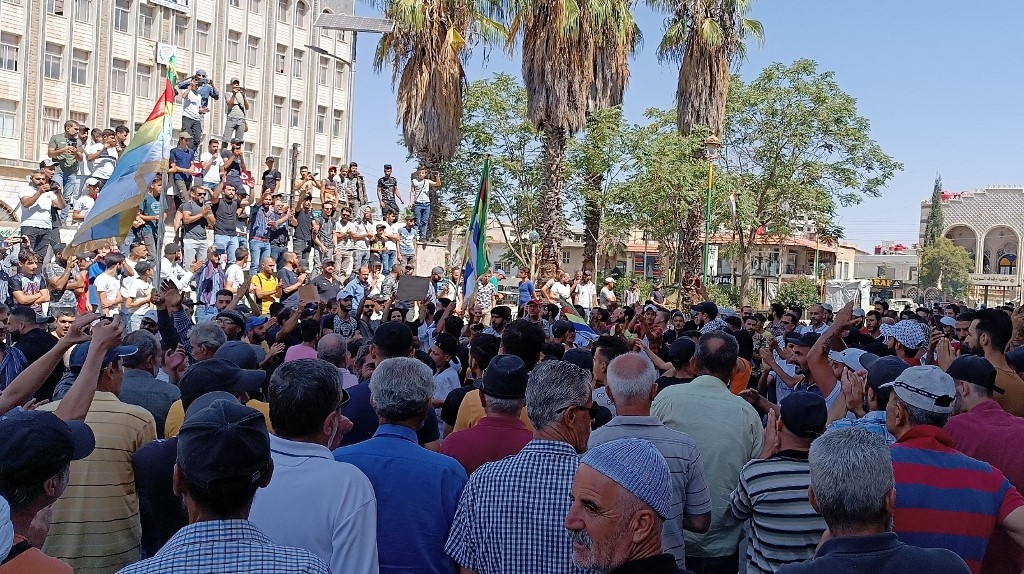
Hundreds of angry protesters gathered in southern Syria for the sixth consecutive day to demand the removal of Syrian President Bashar al-Assad and to call for improved living conditions.
Increased fuel prices after the government's decision to cut fuel subsidies last week have exacerbated already dire economic conditions amid hyperinflation triggered by the collapse of the lira.
While the protests were initially focused on fuel prices, demonstrators went on to call for better living conditions, the release of political prisoners and condemned what they described as ongoing corruption and poor governance.
The protests, which started in the southern Syrian city of Sweida, have spread to other cities, including in the northwest and government-controlled parts of the Aleppo province, according to local news outlet Sweida 24.
Protests have picked up momentum and have also taken place in the cities of Daraa and Deir Ezzor, as well as the town of Jableh, near the coastal city of Latakia.
New MEE newsletter: Jerusalem Dispatch
Sign up to get the latest insights and analysis on Israel-Palestine, alongside Turkey Unpacked and other MEE newsletters
Videos shared on social media platforms showed people chanting against Assad in the main squares of the city. Some of the chants were reminiscent of those used in 2011 during the pro-democracy uprising that later descended into a years-long civil war.
Another video shared online showed a large banner depicting Assad being set on fire by demonstrators.
Earlier this week, protesters raided the local offices of the ruling Baath party and partially blocked a highway that connects Sweida to Damascus.
On 20 August, a general strike also took place resulting in local shops all shutting down. Videos shared online showed uniformed law enforcement officers patrolling the streets of Jableh and reportedly asking people to break their strike by re-opening their shops.
Those protesting are believed to be Druze as well as from the minority Alawite sect, who have traditionally supported Assad during the war.
Pro-government Druze religious leaders met on Thursday for the first time after the protests erupted.
Hikmat Hajri, the spiritual leader of Syria's Druze community, acknowledged citizens' rights to protest, but warned against vandalism and acts of violence.
"These protests are the righteous voice of the Syrian people," he said, though he did not comment on or back calls for Assad to step down.
The protests have raised concerns that they could spread to other cities and escalate into violence.
State media has not covered the protests, while pro-government commentators have blamed foreign powers for fuelling unrest.
Middle East Eye delivers independent and unrivalled coverage and analysis of the Middle East, North Africa and beyond. To learn more about republishing this content and the associated fees, please fill out this form. More about MEE can be found here.


